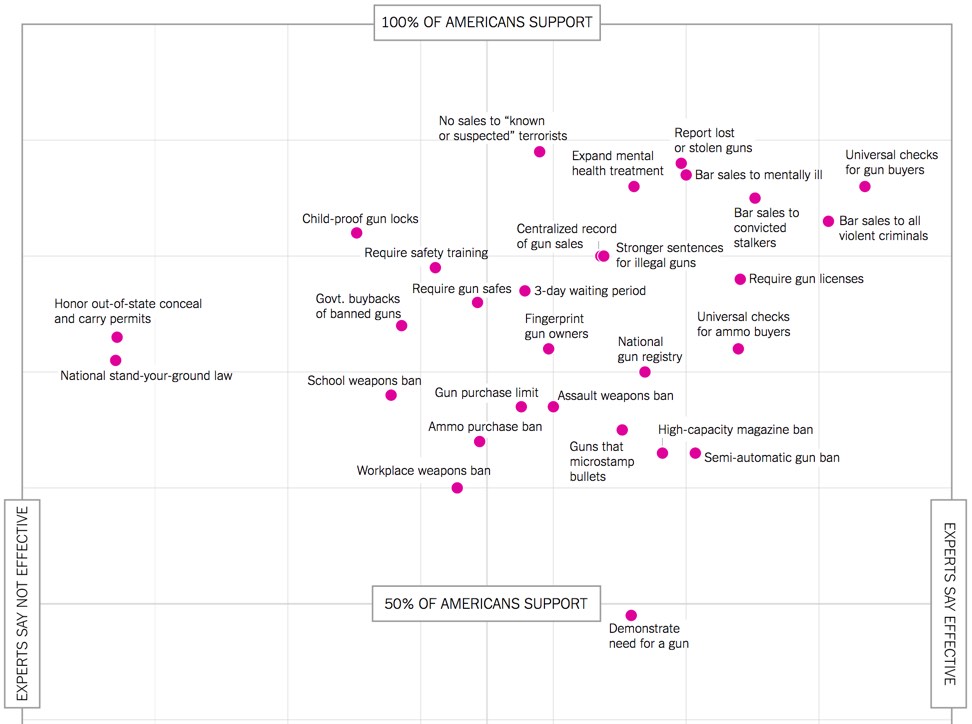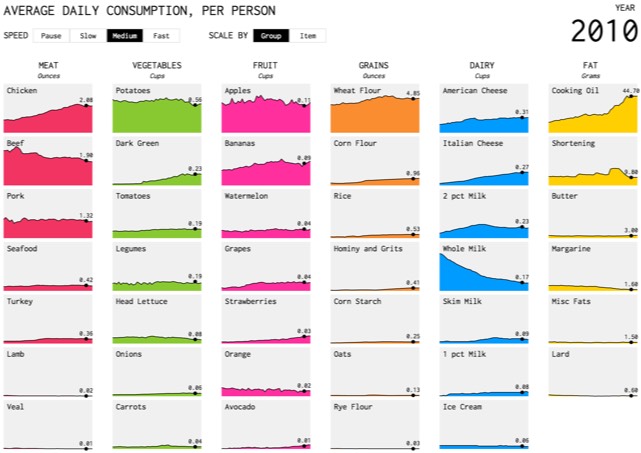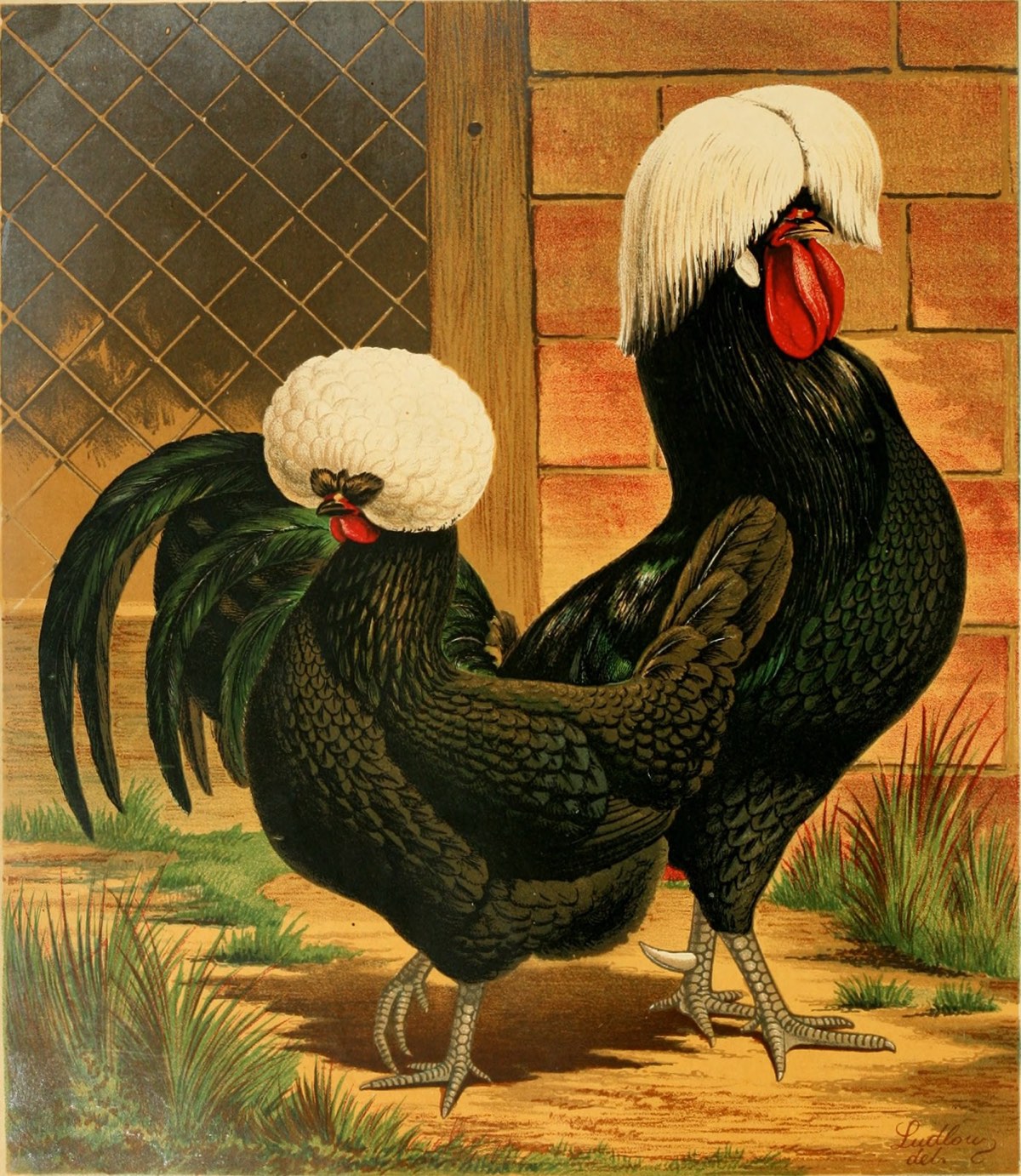
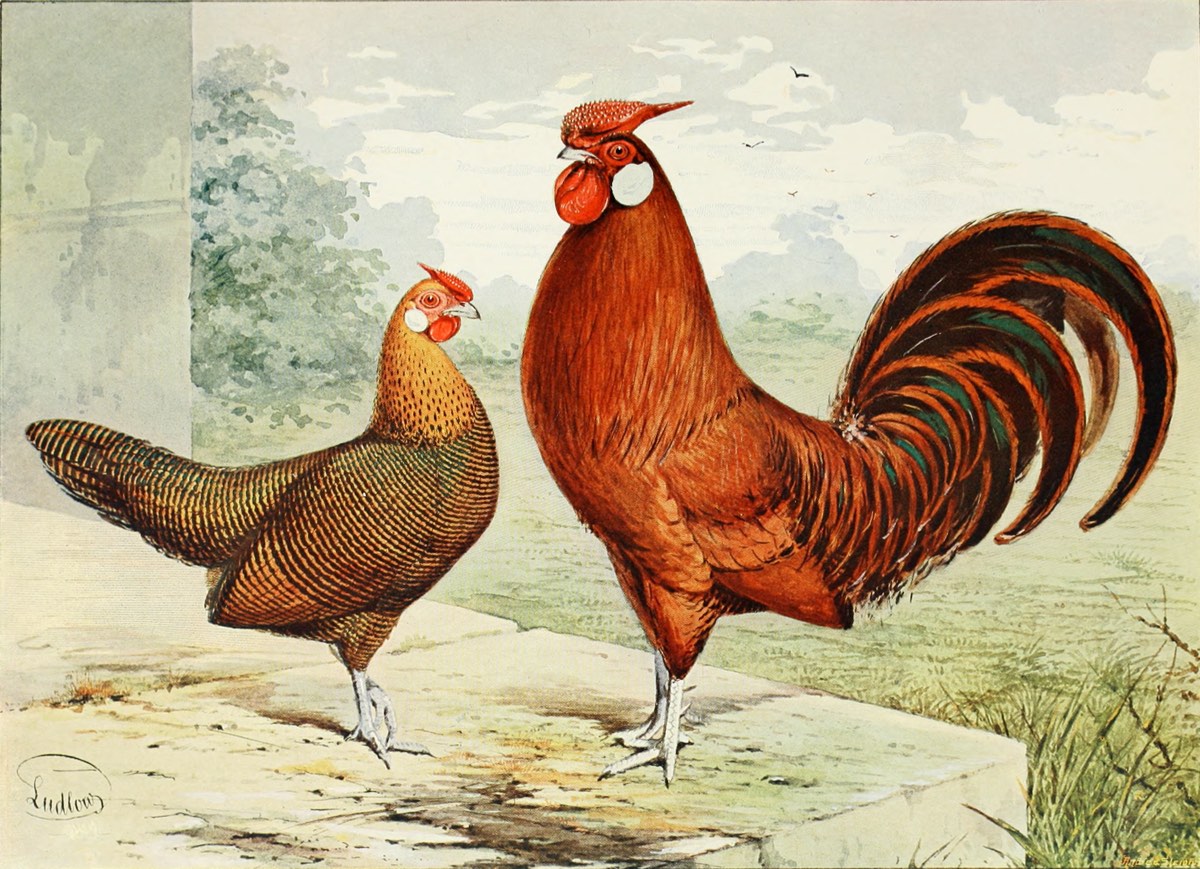
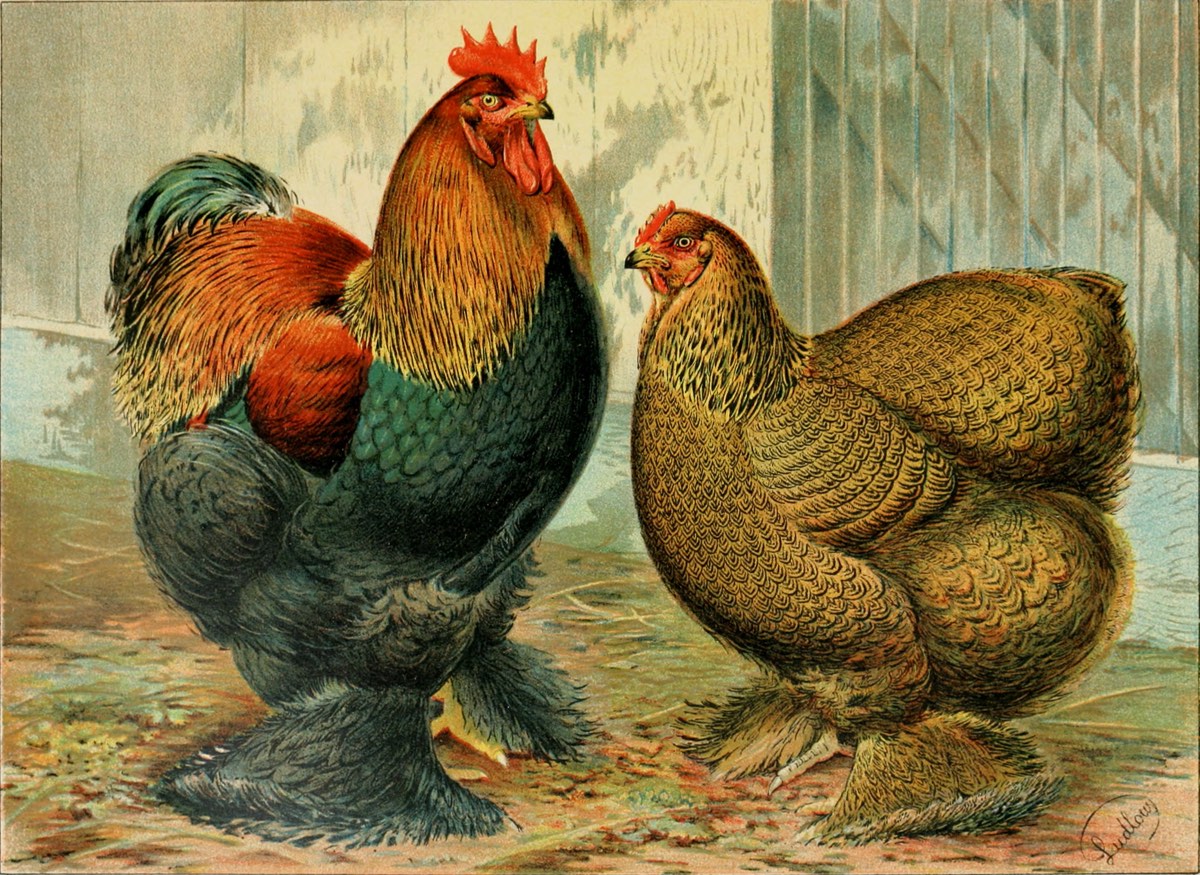
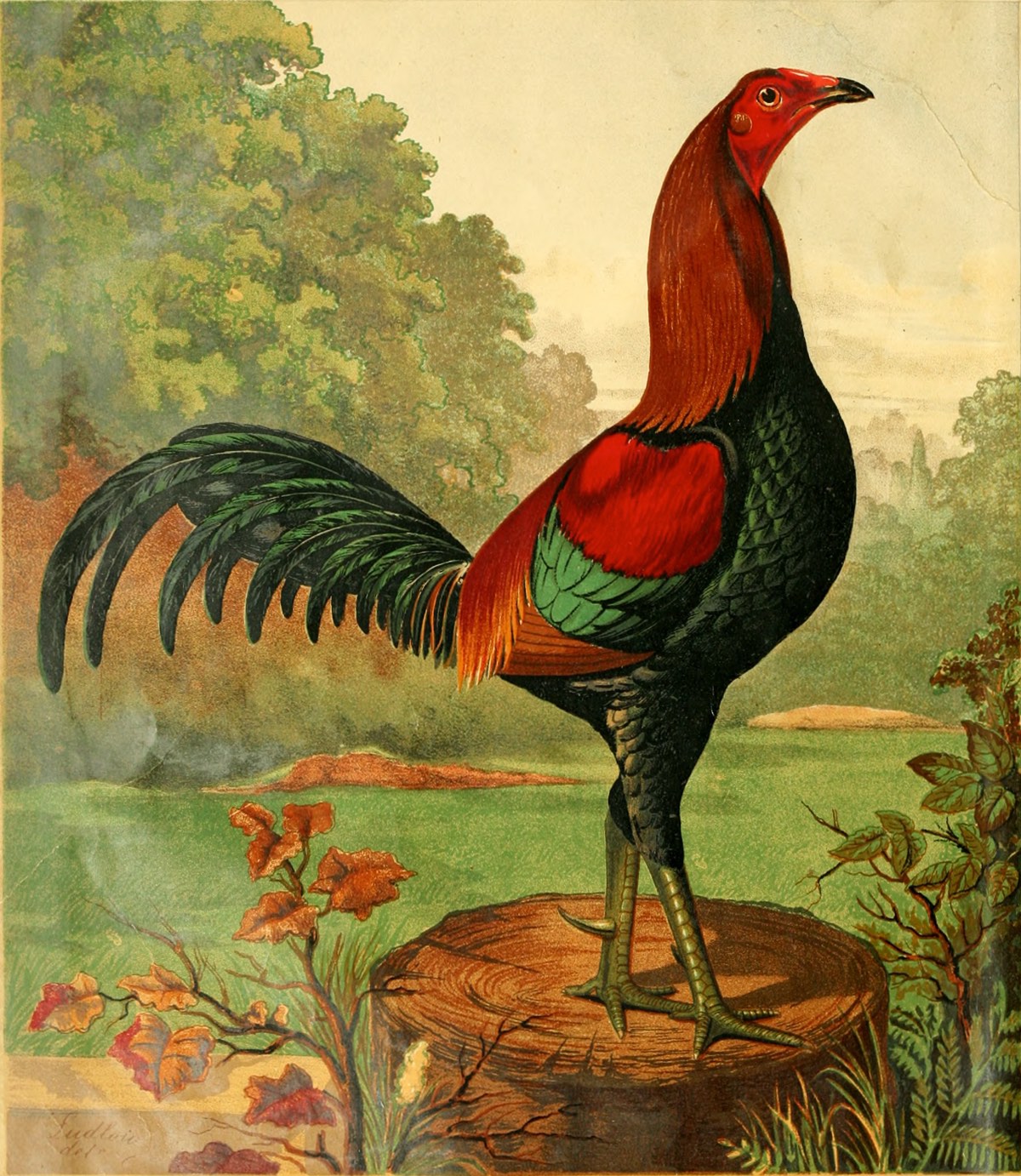
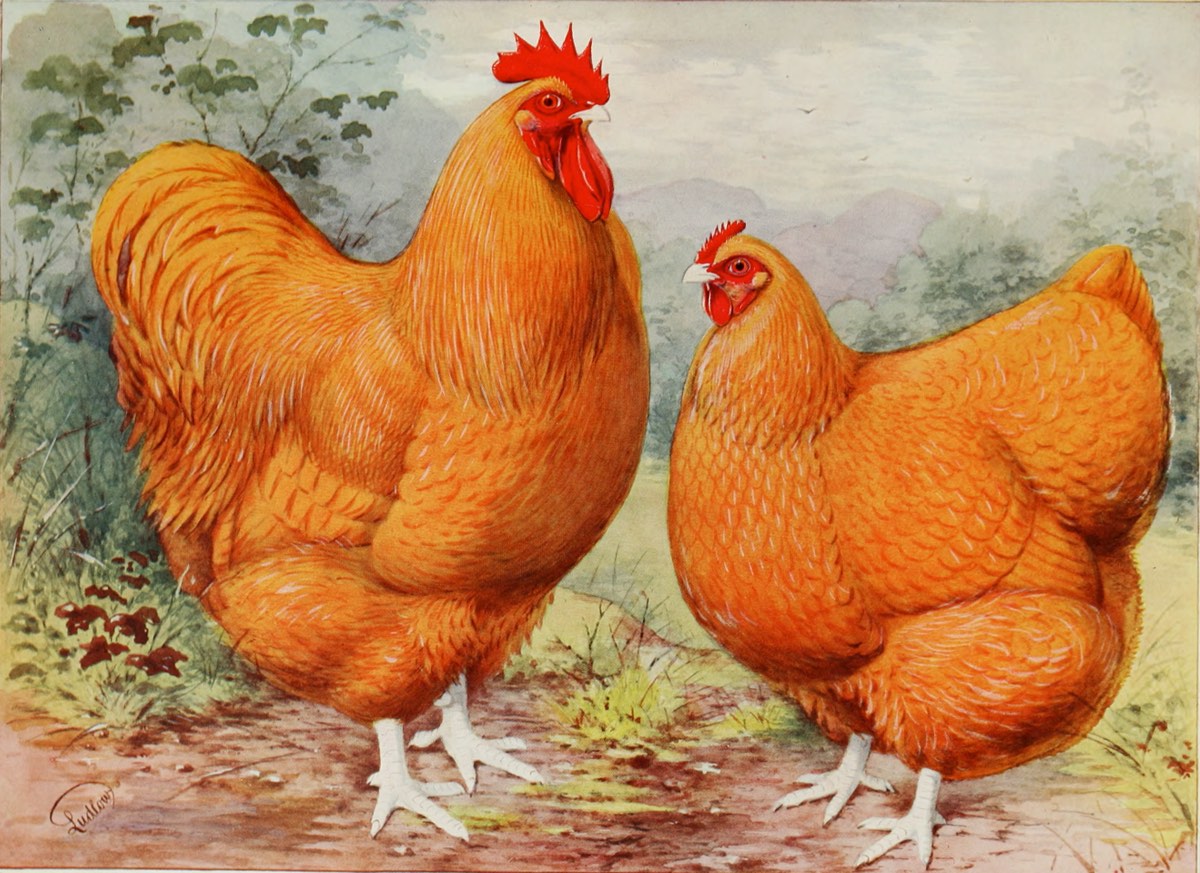
The Illustrated Book of Poultry by Lewis Wright, first published in 1870 and revised several times in the decades following, was “regarded as the most desirable of the English poultry books”. Poultry was very popular in Victorian England and the book housed contained a tremendous amount of practical poultry knowledge. From a Harvard Library blog post:
“Hen Fever”, as it became known during the Victorian Age, was an unprecedented obsession with owning, breeding, and showing the finest chickens in the world. The genesis of the poultry fancier owes much to Queen Victoria and her royal menagerie. In 1842, she acquired exotic chickens from China, and whatever the Queen did, the public would soon try to imitate and incorporate at home. The Illustrated London News reported “Her Majesty’s collection of fowls is very considerable, occupying half-a-dozen very extensive yards, several small fields, and numerous feeding-houses, laying-sheds, hospitals, winter courts, &c.”. From this point forward, poultry was no longer viewed as common farmyard critters, but valued and appreciated throughout the classes of Victorian Britain. The import and breeding of poultry was not just a leisurely hobby, but a profitable endeavor with sky rocketing price tags for the finest examples.
But the books also contained many wonderful illustrations of the finest examples of chickens and other poultry in the style of Audubon. The different breeds have amazing names like Buff Orpingtons, Plymouth Rocks, Dark Dorkingtons, and Gold Pencilled Hamburghs.
I pulled the images above from a 1911 edition of the book. I don’t know about the quality, but you can also buy a paperback reproduction of The Illustrated Book of Poultry on Amazon. (via @john_overholt)
Update: I removed a link to a reproduction of the book on Amazon because a reader reported that the quality was not great. (thx, alex)
Tags: artbooksillustrationLewis WrightThe Illustrated Book of Poultry
